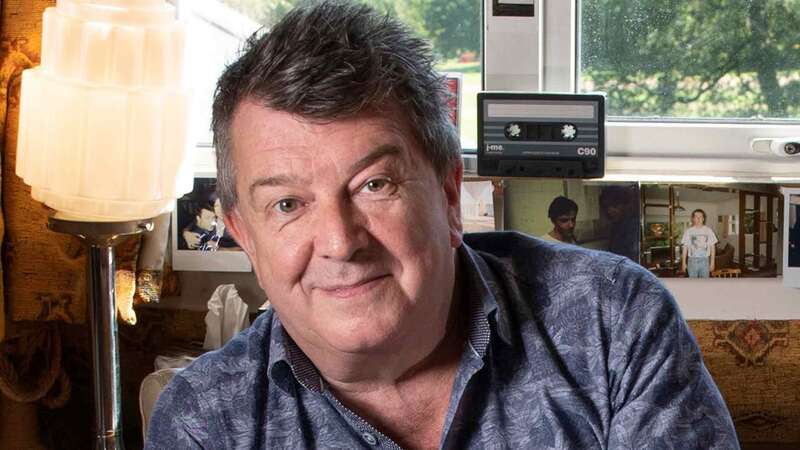You are viewing your 1 free article this month. Login to read more articles.
Dyer the Craftsman
Kiran Acharya: You’ve been asked a lot about genre and the fiction/non-fiction divide. Do these distinctions emerge from the writing itself, or do they have more to do with the publishing?
Geoff Dyer: I think quite often they're lodged quite deeply in the writer's head. I think that at a very early stage in the writing process, because certain ways of writing have been around for so long, almost at the level of instinct really, your thoughts begin to organise themselves in accordance with some kind of inherited or received template.
I think I've always been quite immune to that, personally, but I can rehash something I've said before: both readers and writers come equipped with a set of expectations about how certain kinds of material will be arranged. The distinction between fiction and non-fiction – did it happen? Didn't it happen? – that doesn't get us very far. You start to see very quickly that the main distinction is a formal one.
We approach, as readers, fiction and non-fiction in different ways and expect those two things to behave in different ways. Our expectations are pretty much formal, I think, and we recognise certain forms. We say, 'oh yes, I know what this is meant to do', and we become very uncertain about how to read books which aren't behaving as our long experience of reading certain kinds of books encourages us to. And I think also that maybe that’s so ingrained that writers do that too.
So I'm just pleased that for some reason – probably all kinds of perverseness goes on here – that I've managed to resist that. I really believe that people have often not known how to read my books, or they've not known how to pre-read them, and they've had to learn how to read them as they've gone along. Which I think might be one of the reasons why people have tended to like my books more after a certain period has gone by.
There's a long history of people saying of me, 'oh he's not as good as he was back then', and then you go back then, and people were saying back then 'he's not that good'. Then you go right back to the beginning and people are saying ‘this book [Dyer’s] The Colour of Memory isn't really much of a novel’. And in some ways I would agree, yeah, it's not much of a novel but maybe that's not such a bad thing.
KA: Novels and fiction can be analysed, can to some extent be taught. Does this suggest that fiction can be assembled by anyone who's willing to have a go?
GD: In a way when we're assessing a novel, quite often what we’re doing is saying 'how closely does this particular instance of it approximate to our idea of what a novel should be?' And that's quite a straightforward critical measurement to make, really.
It's much more difficult when you've got a book that's quite clearly falling short of what the novel's expected to do. We've got this sort of conventional novel mould, and then you have this whole area of exemption, that thing called 'the experimental novel'. And that means you can do any number of crazy things, you can print the letter p upside down so it becomes a d or something. It always tends to operate somewhat at the typographical or gimmicky level, that kind of experimentation.
Whereas I think there's this much more interesting area of experimentation where actually, you're not even aware of it being an experiment because it doesn't have that somewhat lab-coated, sterile atmosphere to it. And that kind of experimentation – or that kind of originality – will typically, I think, be happening at the level of form, where you're reconfiguring what a certain kind of writing can do. And I think [Milan] Kundera says that typically the innovations don't come with this big kettle-drum roll of 'this is really weird, what I'm doing!' They tend to be quieter and subtler really.
KA: You mention kettle drums and a manifesto: we've had one in the shape of David Shields’ Reality Hunger. One of the quotations he uses says: “All writing is autobiography; everything that you write, including criticism and fiction, writes you as you write it.” Again, something that I thought applied to your body of work… you don't recognise any of the distinctions.
GD: No. But just thinking about that book of essays of mine [Working the Room], even if you take the point that you write a shopping list and it's autobiography, it works in degrees. The personal pieces at the end of that book are much more autobiographical than say, the essay on Dennis Johnston.
I really like the David Shields book. The first thing to say about it is that it's incredibly original. Which is quite funny really, given that all these people are making such a fuss saying 'he's stolen all these bits from other people!'. What he’s doing is a lot more original than a lot of these novels where people haven't stolen, but they've just swallowed wholesale the idea of what a novel is.
But I think it's a lot more interesting as a book than it is as a manifesto. It's in the ways that it falls short of its own manifesto-ness that I think Shields really does himself credit. Whereas the typical manifesto abolishes all subtleties and caveats and fiats and qualifications, I think Shields is making a really subtle and nuanced argument. To use a phrase I've used before, he's not quite the anti-novel jihadist that you might think from the soundbites.
KA: Hunter S. Thompson was famously known to have wanted to write capital-F fiction, but what Dr Bob Geiger says, to whom he dedicated Fear and Loathing in Las Vegas, is: “Hunter had this horse's ass idea that it was supposed to be important to be a fiction writer. I'd point out to him, Hunter you are writing fiction. All writing is fiction…”
GD: But I guess with all of these generalities you're sort of losing something if you say it's all fiction. With the Hunter Thompson stuff I can see that whether it happened or not doesn't make much difference, but it would be crazy to say that Antony Beevor's Stalingrad was fiction. That's a quite clear-cut one.
Then you go to somebody who's not doing that kind of historical research, you go to somebody like Joe Simpson with Touching the Void. There's it's really quite important that this really happened. We'd feel kind of cheated if it turned out he hadn't been hanging on a rope and all this kind of stuff. So it seems to me it doesn't actually help much to say 'actually it's all fiction, by virtue of the fact that it's being written about', because certain kinds of writing depart more obviously and veer further from what actually happened.
But in the case of what I write, since nothing really dramatic happens, and since its appeal is not predicated upon whether that I did this or that because what I'm actually doing is so insignificant anyway, then I think I'd be more in sympathy with that remark. It's funny, it's one of these generalisations the accuracy of which depends on the particular instance that you're applying it to. Which points to its limitations as a generalisation.
KA: That sounds about right, a case-by-case basis.
GD: But yeah, fiction, non-fiction – I've said this before – I'm not exactly famous but in Yoga for People Who Can't be Bothered to Do It there's that scene where the narrator is all fucked up on mushrooms, goes into the toilet, the trouser thing. All the young stoner kids love that, but it comes as a great disappointment to them at readings when I have to say that it never happened. It was a story somebody had told me about something that had happened to them at Glastonbury, and in the classic fiction writer's way, I sort of sellotaped it in to my own account.
The only thing that matters is not whether it happened or not, but whether you can see the joins or not. Whether you can see the point at which I go from faithfully recording what happened on a rainy afternoon in Amsterdam. And of course the thing is you can't see the joins. That's all that matters.
KA: Looking back on Paris Trance and The Colour of Memory, what do you like about them?
GD: Ah, good question. Great question! In The Colour of Memory what I like – and this is not surprising – is that there's a lot of lyrical writing, which is what you'd expect from a young writer. There's a lot of colour, blue skies, I think there's fantastic romance in it, I think there's some great druggy bits and I think there's a great kiss. Yeah, I like the romance of it. There's a load of stuff which if I was doing it now I'd get rid of, because clearly I was unsure of whether I was writing a book celebrating Brixton at the time, or a more tightly focussed thing about the relationships.
Paris Trance I'm much happier with overall. I like a load about that. Having said that, I'm not one of these masturbators; I don't think I've re-read one of my books since they've been published. Occasionally I flick through it, but Paris Trance, or my memory of it, I feel pretty good about. And I reckon in some ways, in terms of fiction, I said a lot of what I wanted to say in that book, which would probably explain why it was ten years before I wrote another novel. If at that point I'd been told I'd only got three months to live I'd have felt OK.
Because I kept failing to write Paris Trance, for many years, if I hadn't managed to do that I think I'd have been really frustrated and felt I'd sold myself short. Whereas when I finished writing it, I remember thinking, 'Oh good. That was something I really wanted to do.'
KA: There are scenes in Paris Trace that are aligned very closely with a desire to preserve moments of happiness. The characters look at photographs, there's Nicole's mirror, which has a visual delay. Do such mirrors exist?
GD: Ah... no. And I can't remember where I got that idea from. I'm pretty sure I didn't steal it from anywhere. But certainly there are old mirrors that don't reflect well, where the backing has corroded or whatever. It's funny, I'm so allergic to magic realism and I suppose that's kind of a magic realism thing. It ends up working really well in technical terms. It enables the other guy to actually see some stuff that he's not meant to have seen.
It certainly seems plausible that mirrors like it could exist, especially in the weird part of the world that Nicole is from, the Balkans. It wouldn't have surprised me to have read such a thing in Rebecca West's Black Lamb, Grey Falcon. In a sense maybe all mirrors do that, though. I look at the mirror now and… I don't think, shit, there's this fifty-something old guy. It's weird that it contains your youthful self. It's funny how what you're seeing in the mirror isn't that different to what you were seeing in it forty years ago. Mirrors have a weird thing of containing the past. And that's all bound up with one's own consciousness, of who one is.
Geoff Dyer’s latest book Zona is out now, published by Canongate.














